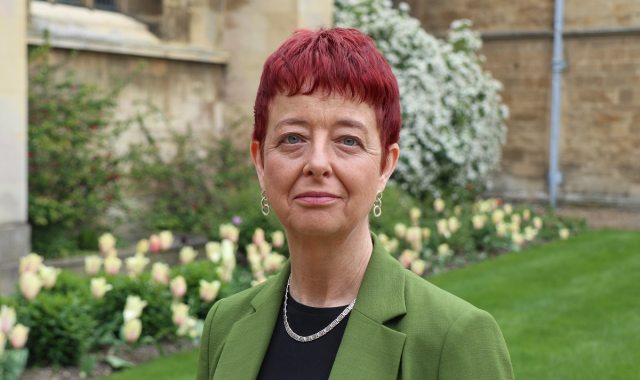Professor Sir Peter Ratcliffe, Caian and Honorary Fellow, awarded 2019 Nobel Prize in Physiology or Medicine
- 07 October 2019
- 3 minutes
Professor Sir Peter Ratcliffe, who studied Medicine at Gonville & Caius College in 1972, has been jointly awarded the Nobel Prize in Physiology or Medicine for discoveries of how cells sense and adapt to oxygen availability.
Announced today, the prize has also been awarded to William Kaelin Jr and Gregg Semenza.
Oxygen is essential in helping us convert food into energy. This year’s three Nobel Laureates have received their award for discovering how cells sense and adapt to changing oxygen availability and identifying molecular machinery that regulates the activity of genes in response to varying levels of oxygen.
According to the Nobel Prize website, “The seminal discoveries by this year’s Nobel Laureates revealed the mechanism for one of life’s most essential adaptive processes. They established the basis for our understanding of how oxygen levels affect cellular metabolism and physiological function. Their discoveries have also paved the way for promising new strategies to fight anaemia, cancer and many other diseases”.
Professor James Fitzsimons, Life Fellow, and Director of Studies in Medicine during Sir Peter’s time at Caius, said, “Professor Ratcliffe and his collaborators have made major and internationally recognised advances in physiology and protein science. The work has far-reaching consequences that provide insights into how the oxygen sensing mechanism controls the production of blood. It is a perfect complement to another Caian, William Harvey, and his discovery of the circulation of blood.
"Peter Ratcliffe’s research has been on the mechanisms of oxygen sensing in the body. Hypoxia (lack of oxygen) is an important factor in cardiovascular and respiratory diseases – strokes, blood disorders, cancers etc. When oxygen tension in the blood is low, a factor called hypoxia-inducible factor (HIF) activates genes encoding erythropoietin (EPO), which causes increased production of more oxygen-carrying red blood cells.
"But the key question is how does HIF act as a sensor of oxygen; in a brilliant series of experiments Peter showed that HIF is an unstable protein. It is degraded when oxygen tension is high but it is stable when tension is low. Peter’s research is of fundamental importance in medicine and basic science."
Sir Peter was admitted to, and read Medicine as an undergraduate at Caius and Professor Fitzsimons remembers him as “a typical Caius medical student, hard-working, interested and a pleasure to teach.” In 2014 - the same year he was knighted – Sir Peter was made an Honorary Fellow of Gonville & Caius College.
Sir Peter is the 108th affiliate of the University of Cambridge to have been awarded a Nobel Prize, and he brings the number of Caian Nobel Laureates to fifteen.
Commenting on the news, Dr Pippa Rogerson, Master of Caius, said: “Gonville & Caius College is delighted that our past student and current Honorary Fellow, Professor Sir Peter Ratcliffe, has been jointly awarded the Nobel Prize today, for discoveries of how cells sense and adapt to oxygen availability. The College is proud of the fifteen Nobel Laureates who have been part of our relatively small community as students or fellows. We congratulate Sir Peter most warmly.”
Adapted from an article on the University of Cambridge website.
Image credit: The Nobel Prize


